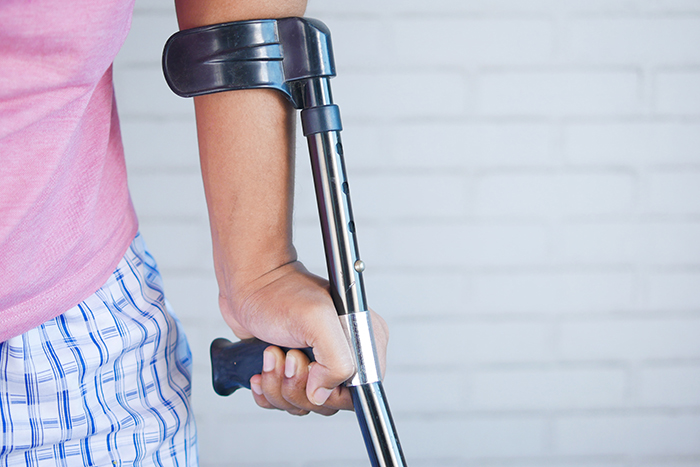It is well understood that an employee who gets injured at work as a result of his drug or alcohol use, that employee forfeits any benefits to which he might be entitled under the workers' compensation law. The State of Florida comes down very hard on drug users in the state especially when it comes to the use of drugs at work.
As is the caser in most states, workers' compensation benefits are not “payable if the injury was occasioned primarily by the intoxication of the employee; by the influence of any drugs, barbiturates, or other stimulants not prescribed by a physician…"

What is often misconstrued is whether the business must qualify as a “Drug Free Workplace" in order to take advantage of the defense. In Florida, this defense is available to all business regardless of whether that business qualifies as a “drug Free Workplace" or not.
In fact, according to §440.09(7)(a), even if the employer has not implemented a drug free work place, the employer still “may require the employee to submit to a test for the presence of any or all drugs or alcohol in his or her system."
Furthermore, if the employee is tested at the time of the injury then a blood alcohol level equal to or greater than a .08 or the positive confirmation of a drug creates a presumption that “the injury was occasioned primarily by the intoxication of or by the influence of the drug upon the employee. If the employer has actually implemented a drug-free workplace, this presumption is even more difficult for the employee to overcome and “may be rebutted only by evidence that there is no reasonable hypothesis that the intoxication or drug influence contributed to the injury."
Essentially, the injured worker has to prove that something other than the drugs or alcohol caused the injury. (Drunk driver vs. Drunk restrained passenger.) This is one of the strongest sections of the workers' compensation statute in Florida in favor of employers.
Once there is a positive drug or alcohol screen, the employee then must prove:
- The actual quantitative amounts of the drug or its metabolites as measured on the initial and confirmation post-accident drug tests of the injured worker's urine sample; and
- Provide additional evidence regarding the absence of drug influence other than the worker's denial of being under the influence of a drug.
For drugs that show up on a urine screen, this is an inherently impossible requirement. A urine screen does not provide information as to the quantitative amounts of the drug; it merely indicates whether the sample had the threshold amount to trigger a positive indicator. In fact, this section of the law specifically states that “No drug test conducted on a urine sample shall be rejected as to its results or the presumption …on the basis of the urine being bodily fluid tested." Reading into this section further, we see that one of the major flaws of a urine screen is intentionally ignored. Specifically, a urine screen is extremely unreliable in attempting to date when a drug entered the employee's body.
However, the language of the statute seems to not only contemplate this well known fact but use it to the advantage of the employer. Essentially, if a urine screen tests positive for THC, the assertion raised by an employee that he only smoked marijuana two weeks earlier is not relevant. Moreover, this section of the law specifically requires an employee to “provide additional evidence regarding the absence of drug influence other than the worker's denial of being under the influence of a drug." Consequently, the employee claiming he was sober by the time he went to work is insufficient evidence to overcome the presumption of intoxication causing the injury.
Important Distinction: Legal vs. Medical Samples

To benefit from the Presumption, the collection of the samples from the employee used to test for drugs must follow specific guidelines as outlined in the Florida Administrative Code for a Drug Free Workplace despite the fact that the employer does not have to qualify as one in order to benefit from the Presumption. According to FL Administrative Code 59A-24.004, the only samples from an employee that may be tested is Urine and Blood. Although some companies test on samples of saliva and hair, the results cannot be used as evidence in this context. Additionally, there are complex procedures for keeping a proper “chain of custody" as well as every detail of the collection procedure thereafter.
This an important point as most hospitals in Florida do not follow Florida Administrative Code in the collection and testing of samples as they are only interested in the results for diagnostic purposes; not for legal means.
Best Practices for Taking Advantage of this Law
- For those occasions when an employee is injured in a remote location or is sent to a hospital that will not conduct a legal test, it is important to work with a company that conducts mobile drug testing for the purpose of the following Florida Administrative Code. There are several great companies that provide this service.
- Find out the procedure at local hospitals for getting “Legal" samples of blood and urine. Some hospitals that do not automatically perform drug screens for “Legal" purposes will have a procedure to allow your own vendor to do so at the hospital.
- Drug test after every accident on the day of the accident even if the employee refuses treatment;
- If employee refuses to be drug tested, have him sign a statement confirming that he is refusing. This is important because if “the injured worker refuses to submit to a drug test, it shall be presumed in the absence of clear and convincing evidence to the contrary that the injury was occasioned primarily by the influence of drugs";
- If you do not have an implemented drug free work place policy or if used proper protocol, terminate the employee;
- Make it clear to supervisors and crew leaders that knowledge and approval of drug or alcohol use will not be tolerated as if the employer “acquiesces" to the drug or alcohol use then this defense is unavailable.